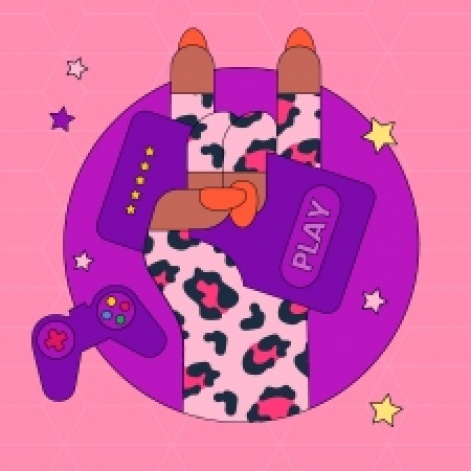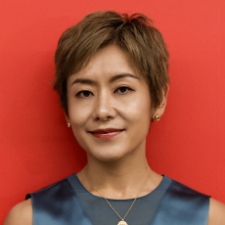Mobile advertising company Liftoff has invited inspirational women working on some of the biggest mobile games to discuss their achievements, challenges and future aspirations. This time, the focus is on Amy Huang, CEO of Mattel163.
UNO has a big place in Amy Huang’s heart. Moving somewhere new can be a scary experience, especially at a young age. When Huang moved from China to the US, UNO was one of the first new games she was introduced to, and playing it alongside new friends at the local church helped her get to know the culture and traditions of her new country. That left a deep impression on her, so much so that many years later, she would dedicate herself to bringing the gaming community together through UNO Mobile, her first big game as CEO of Mattel163.

But it wasn’t just Huang’s love of card games that got her to where she is today. Her impressive career spans e-commerce, management consulting, and over a decade of experience in mobile gaming. She spent five years at NetEase in a corporate investment role that introduced her to talented developers from all over the world and gave her insight into the challenges of mobile game development. When NetEase partnered with Mattel in 2017 to establish Mattel163, Huang’s skillset put her first in line to take the reins.
Mattel163 has gone from strength to strength under Huang’s leadership, growing from a small group of just over 13 at launch to a talented team of nearly 300 mobile professionals six years later. They’ve successfully developed and published three games based on existing card game IP, collectively gaining over 300 million downloads: UNO Mobile, Phase 10: World Tour, and Skip-Bo Mobile. The question is, what’s next?
Finding new audiences through an IP-based strategy
Beyond turning classic board games into successful mobile powerhouses, Huang is pushing the studio toward its next challenge—building experiences based on Mattel’s portfolio of globally recognised franchises.
“We are growing our pipeline with the huge portfolio for brands from Mattel,” Huang says. “Our mission is to take all the cherished IPs that people have known from over the past decades, and transform them into a digital experience that people can enjoy for generations to come.”
Mattel owns everything from Hot Wheels and Monster High to Barbie, so it’s no surprise that Huang opted for an IP-based strategy. So far, Huang and her team have been successful. UNO Mobile, Phase 10: World Tour and Skip-Bo Mobile have garnered over 300 million global players, which isn’t an easy feat for a young mobile game studio of just six years.
Huang adds: “The most challenging part was figuring out how to take a physical game that takes an hour to play in real life and turn that into a mobile experience under just a few minutes. Once we figured out the core mobile gameplay, we concentrated on keeping the gameplay refreshing, which meant creating new types of live-op events to engage users to keep the experience fun and rewarding.”
But Mattel163 is far from the only one to take this stance. Following the standout success of titles such as Monopoly GO! and Marvel Snap, more and more developers are leveraging the power of well-known franchises to market their games in this increasingly competitive market. To put that into numbers, Newzoo found that only one game in the iOS top 100 download chart wasn’t based on an existing IP last year.
The most challenging part was figuring out how to take a physical game that takes an hour to play in real life and turn that into a mobile experience under just a few minutes.Amy Huang
Huang knows that working with beloved IP is no easy task, but she believes the results speak for themselves: “There’s a reason certain games and brands have been around for decades, and that’s because they’re hugely entertaining. Having an established cultural IP behind your title contributes to brand awareness and marketing, But you need a core engaging game experience that adapts well with that brand and audience.”
Brand inclusivity and its impact on recruitment
Mattel’s IP appeals to a diverse, global demographic. As you might expect, the brand’s wide audience has made Mattel’s games easier to scale—but it’s also assisted with recruitment.
“Attracting the right kind of people and motivating them with the right incentives is the biggest challenge of any business,” Huang says. “We’re fortunate to have the Mattel brand behind us as it helps us to bring together a range of talented people. We have people from many different cultures at our studio, whether on the production or the marketing side, enabling us to tailor our products to the global market.”
Huang points out that Mattel163 has a diverse employee base, with a notable 50/50 divide between male and female producers. Compare that to the benchmark provided by Women in Games, which found that only 16 percent of women working in the industry are in executive positions and comprise 22 percent of the gaming workforce.
Huang adds, “We aim to be inclusive toward everybody with the talent and passion for the products we want to create. A game’s workforce should be representative of its users. Our audiences come from difficult cultures and backgrounds. By reflecting that diversity in our team, we can better understand what resonates emotionally with our players.”
Encouraging women to pursue gaming professionally
That diversity push has also crept into another gender-challenged area of video games, esports, where just five percent of professional gamers identify as women. Mattel163 has held more than ten tournaments since launching its accessible esports brand in August 2022, including the UNO Mobile Wildcard Series: All Stars, Duos Invitational, and Community Cup USA & Canada 2023. The gender inclusivity is evident by glancing at some of the winners—such as the first champion of the UNO Mobile Wildcard Series, popular streamer LilyPichu.
“UNO is such a beloved game that’s been around for over 50 years, and now, with this mobile version and our esports tournaments, we're able to connect from all around the world,” Huang says. “What’s cool about UNO! Mobile is that anyone with a quick mind and love of strategy can win, which has allowed people from all different backgrounds to succeed at our esports tournaments.”
Huang firmly believes that despite the picture painted by industry numbers, women shouldn’t be afraid to pursue gaming professionally, whether as game makers, esports athletes, or influencers. However, her own experiences have taught her that it can be challenging to find a positive work-life balance in this industry, especially in a role that sees her involved in so many aspects of the business, from discussing recruitment to coaching others, overseeing production, supporting the marketing team, and so much more.
Despite that, Huang also says that the benefits of a career in gaming make all the challenges worthwhile, “Gaming is such an interesting industry; it’s creativity blended with business. I think that’s why so many of us have been in this industry for as long as we have. It serves as a creative outlet, allows you to interact with your audience with immediate feedback, and demands continuous innovation to stay on top. Life in gaming never gets boring!”





















